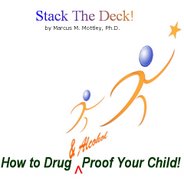Give your children consistent love and attention. Every child needs a strong, loving, relationship with a parent or other adult to feel safe and secure and to develop a sense of trust.
Communicate openly with your children, and encourage them to talk about all aspects of their lives: school, social activities, and their interests and concerns. Listen respectfully and solicit their opinions. Then, if a problem or crisis arises, they will be more likely to come to you.
Set clear standards for your children's behavior, and be consistent about rules and discipline. Involve your children in the setting of rules whenever possible, and discuss the reasons for rules with them. Make sure they understand what you expect and the consequences for disobedience, and then enforce rules consistently.
Make sure your children are supervised. Insist on knowing where your children are at all times and who their friends are. Try to get to know their friends' parents and your children's teachers. Encourage your children to participate in supervised after-school activities such as sports teams, tutoring programs, or organized recreation.
Promote peaceful resolutions to conflict by being a good role model. Deal with conflict at home calmly, considerately and quickly and manage your anger without violence. Talk with your children about handling disagreements, and help your children learn how to examine and find non-aggressive solutions to problems.
Talk with your children about the consequences of drug and weapon use, gang participation, and violence. Explain in detail how getting involved with these can result in injury, jail, even death. Also, make sure that all weapons are kept out of the reach of children.
Limit your children's exposure to violence in the media. Monitor the programs your children watch, the music they listen to, and the video games they play. Take time to watch television programs with your children and discuss any violence with them. Is the violence realistic? What would be the real-life consequences of such violence?
Try to limit your children's exposure to violence in the home or community. Work toward making your home a safe, nonviolent place, and always discourage violent behavior or hostile, aggressive arguments between family members. If the people in your home physically or verbally hurt and abuse each other, get help from a psychologist or counselor in your community. If your children are exposed to violence in the street, at school, or at home, they may need help in dealing with these frightening experiences. A psychologist, a counselor at school, or a member of the clergy, are among those who can help them cope with their feelings.
Take the initiative to make your school and community safer.
- Join up with other parents, through school and neighborhood associations, religious organizations, civic groups, and youth activity groups.
- Talk together about your concerns about youth in the community, including issues related to alcohol, drugs, and violence, and share your common parenting concerns.
- Support the development and implementation of school and community plans to address the needs of youth.

